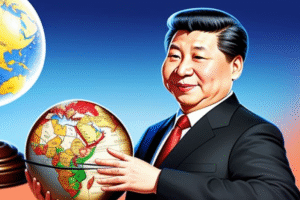$SAP $TRIP #TravelTrends #BusinessTravel #USATravel #EconomicImpact #GlobalBusiness #Tourism #MarketShift #TravelStats #SAPConcur
Why Are Business Travel Bookings to the U.S. Soaring While Leisure Travel Dwindles?
In a surprising shift in travel trends, leisure travel to the United States has seen a notable decrease this year, yet the nation remains a beacon for international business travelers. SAP Concur reports a robust uptick in business-related bookings, positioning the U.S. as a premier destination for corporate engagements globally. This development is intriguing, highlighting a divergence in travel purposes that warrants a deeper exploration.
Exploring the Decline in U.S. Leisure Travel
Recent data suggests a cooling interest in leisure travel to the U.S. Among various factors, economic uncertainties and changing consumer preferences play significant roles. As households tighten their budgets, discretionary spending on vacations abroad becomes less prioritized. Moreover, the resurgence of remote work allows people to blend leisure with business trips, possibly diluting pure leisure travel statistics.
The Surge in Business Travel: A Closer Look
Conversely, the surge in business travel to the U.S. can be attributed to several key factors. Firstly, the U.S. continues to be a hub for major industries and corporate events, drawing professionals worldwide. Additionally, the easing of travel restrictions post-pandemic has facilitated a quicker recovery in business travel compared to leisure sectors.
Economic and Strategic Implications
This shift in travel patterns has significant economic and strategic implications. For cities known for hosting business travelers, there’s an observable boost in local economies—hotels, restaurants, and transport services see increased demand. Strategically, businesses are likely leveraging face-to-face meetings to solidify partnerships and ignite post-pandemic recovery efforts, underscoring the U.S.’s pivotal role in the global business landscape.
What Does This Mean for the Travel and Hospitality Industry?
For the travel and hospitality industry, adapting to these trends is crucial. While traditional leisure travel sectors may need to recalibrate their strategies, opportunities abound for regions and businesses that can cater effectively to business travelers. Innovations in business conference facilities, corporate hospitality, and tailored experiences could be key differentiators that capitalize on this growing segment.
Looking Ahead: Predictions and Preparations
As we look towards the future, understanding these travel dynamics will be essential for stakeholders across multiple industries. Businesses, travel operatives, and policymakers must consider these trends in their planning and development strategies to ensure they align with the evolving demands of global travelers.
The ongoing evolution in travel preferences highlights the importance of agility and strategic planning in the travel and hospitality sectors. As the landscape continues to shift, staying informed and adaptable will be paramount in capitalizing on new opportunities and navigating the challenges ahead.











Comments are closed.